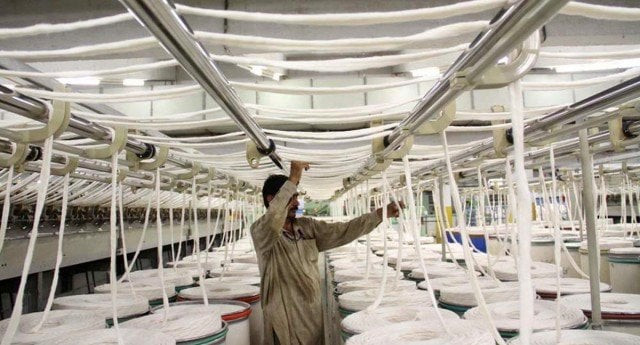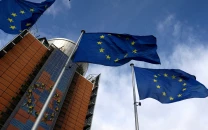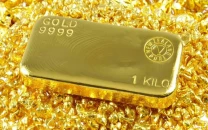Textile millers advocate export-centric policies
Demand reduction in energy, tax rates to become competitive globally

As the country heads towards negotiating another International Monetary Fund (IMF) loan programme, textile millers have called on the government to formulate export-oriented policies by reducing energy tariffs and tax rates to make the industry competitive in the global market.
In a letter to Finance Minister Muhammad Aurangzeb, the All Pakistan Textile Mills Association (Aptma) stressed that as the country was going to negotiate a new IMF programme, a fundamental reform required was to foster an export-centric culture across all sectors of the economy. It was of the view that the new programme should accommodate the peculiar circumstances where the essential need was to develop and expand exports. “This will go a long way in alleviating one of Pakistan’s most pressing issues: a chronic shortage of foreign exchange.”
Read High costs restrict textile exports
According to the IMF’s estimates, Pakistan’s gross external financing requirement stands above $25 billion annually for the next five years. Three sources of fetching foreign exchange to meet this requirement are foreign borrowing, remittances and exports – “the latter being the most sustainable and inclusive”.
However, exports could not thrive under the prohibitive anti-export policies that had been implemented over the past year and beyond, the millers said, adding that high taxes and persistent delays in tax refunds had squeezed out all liquidity from the manufacturing sectors, which represented only about 20% of GDP but contributed over 60% of tax revenue. They are paying 20 different federal and provincial taxes. In addition, power tariffs for industrial consumers have been increased to over 17.5 cents/kWh, which is more than twice the regional average, while gas prices have been raised by 223% since January 2023.
There was “no financially viable source of energy for manufacturing activities in Pakistan,” the textile millers lamented, adding that having learnt lessons from the past IMF programmes, jacking up power tariffs beyond affordability had proved counterproductive and did not yield the desired results as the circular debt continued to grow.
Published in The Express Tribune, April 18th, 2024.
Like Business on Facebook, follow @TribuneBiz on Twitter to stay informed and join in the conversation.


















COMMENTS
Comments are moderated and generally will be posted if they are on-topic and not abusive.
For more information, please see our Comments FAQ